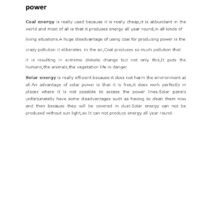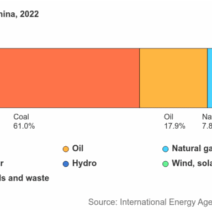Climate change has emerged as one of the most pressing challenges of our time, prompting intense debate and concern across the globe. Amidst the cacophony of alarmist narratives and the equally prevalent disbelief, a pivotal question resonates: Is it too late to stop climate change? This inquiry not only elicits a myriad of responses but also reflects a deeper collective anxiety over the unprecedented alterations facing our planet. As we traverse this complex landscape of ecological dynamics, it is paramount to explore both the countdown to potential irreversible consequences and the flickers of hope that continue to illuminate the path forward.
The temporal aspect of climate change raises critical concerns. Scientists warn that we are fast approaching a tipping point beyond which the deleterious effects of global warming could become irreversible. Current global average temperatures have already risen by approximately 1.1 degrees Celsius since the late 19th century, a change that catalyzes a cascade of adverse effects including more frequent and severe weather events, rising sea levels, and the relentless degradation of ecosystems. The Intergovernmental Panel on Climate Change (IPCC) delineates a stark narrative; to avert the impending catastrophe, we must limit global warming to 1.5 degrees Celsius above pre-industrial levels. This imperative requires global emissions to be halved by 2030 and reach net-zero by 2050—a Herculean task that demands immediate and concerted action.
Why does the prospect of irreversibility evoke fascination and trepidation? The answer lies in the intricate interplay between human activity and natural systems. Anthropogenic emissions, primarily from fossil fuel consumption, deforestation, and industrial processes, actively exacerbate climate change. This underscores a profound existential dilemma: human ingenuity has contributed to this crisis, yet it also holds the potential to alleviate it. This paradox invites further introspection on our capacity for innovation and resilience in the face of adversity.
Despite a prevailing sense of doom, asserting that it is “too late” undermines the agency of individuals, communities, and nations committed to environmental stewardship. Various initiatives showcase innovative approaches towards mitigating climate change. Renewable energy technologies, such as solar and wind power, have advanced significantly in efficiency and affordability, rendering them viable alternatives to fossil fuels. Countries like Denmark lead the charge, producing over 40% of their electricity from wind energy alone.
Additionally, reforestation and afforestation efforts are gaining momentum, aiming to restore ecosystems and enhance carbon sequestration. The importance of maintaining biodiversity cannot be overstated, as rich ecosystems are more resilient to the impacts of climate change. Various rewilding efforts around the globe illustrate a growing recognition of the necessity to rehabilitate and reconnect ecological networks.
Moreover, grassroots movements are rallying individuals to adopt sustainable practices, demonstrating that collective action can yield formidable results. Efforts such as the Fridays for Future movement, inspired by the youth climate activist Greta Thunberg, emphasize the urgency for systemic change, galvanizing millions worldwide to advocate for environmental justice and sustainable policies.
Yet, the endurance of hope is frequently challenged by the enormity of the issue at hand. The complexities involved in coordinating an international response, coupled with the entrenched interests of fossil fuel industries, exacerbate feelings of helplessness. However, acknowledging these obstacles necessitates a broader perspective. The transcendence of inertia in political and economic spheres is indeed a formidable challenge, but it is not insurmountable. The burgeoning emphasis on climate policy, spurred by public pressure, has led to significant legislative advancements in countries worldwide. The Paris Agreement, though imperfect, marks a pivotal moment of international cooperation aimed at reducing greenhouse gas emissions. The ambition set forth, albeit inadequate in some critiques, demonstrates a collective acknowledgment of the crisis.
So, is it too late? The definitive answer eludes us, but it becomes increasingly clear that while the clock is ticking, pathways to redemption remain viable. Scientific advancements continue to elucidate methods of carbon capture and storage, as well as innovative agricultural practices that can enhance soil carbon storage. Furthermore, the integration of circular economy principles foreshadows a collective shift towards sustainability, aiming to minimize waste and maximize resource efficiency.
Importantly, the transference of knowledge and technology to developing nations must become a priority. The disproportionate effects of climate change on these regions underline the ethical imperative to extend support and resources to those who are most vulnerable. Climate justice advocates underscore the importance of addressing social inequality as integral to any effective climate strategy. Fostering global partnerships can empower communities, enabling them to implement localized solutions tailored to their unique ecological contexts.
In conclusion, while the assertion that it may be “too late” resonates with a certain allure, it is crucial to move beyond despair and focus on tangible action and accountability. The climate crisis, with all its complexities, also fosters an extraordinary opportunity for transformation—a chance to redefine our relationship with the planet and with each other. The path forward integrates the urgency of immediate action with the hope that humanity can indeed rise to the occasion. Thus, the countdown continues, but so too does the promise of a more sustainable and equitable future.




